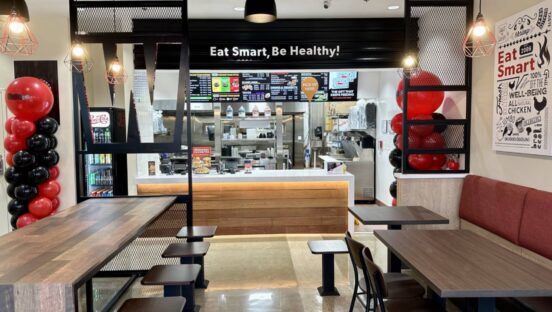When Ray Omar ended his six-year service as a Special Forces communications officer for the U.S. Army in 2006, he moved to Maryland and began a consulting gig with the government. Meanwhile, he couldn’t help but notice that his new city looked nothing like his hometown of Queens, New York. One detail in particular: Where were the Dunkin’ Donuts?
“In New York, there was one on every corner,” he says.
Omar made a call to the brand and, fortuitously enough, Dunkin’ Donuts was in the process of expanding its Mid-Atlantic footprint. Omar signed up, and his career as a franchisee was officially underway.
As Omar soon discovered, having a military background translated to tangible success. According to data from the National Restaurant Association, 19 percent of veterans in foodservice have management positions, compared with just 10 percent of nonveterans.
“The military is all about grooming leaders and making sure you’re inspiring and motivating your team around common goals and principles,” Omar says. “And I think the military gives you the tools and skills to be able to do that effectively on the business side of the house, or the civilian side, as we call it. I think they translate excellently.”
At the International Franchise Association’s annual convention, which is set for January 29 to February 1 at Mandalay Bay in Las Vegas, there will be a special course tailored just for people like Omar who are veteran franchisees. Called “Promoting Veteran Owned Franchises,” the January 31 session will educate attendees on the benefits of being a veteran franchisee and the venues in which to promote your business.
VetFran, a strategic initiative of IFA, was founded in 1991 by the late Don Dwyer, Sr., founder of The Dwyer Group. Initially, it was intended to help Gulf War veterans, but has evolved into a program of more than 650 franchise systems providing financial incentives to former servicemen and servicewomen.
“We are very proud of the work that the VetFran program has accomplished since its founding. We are continuously looking for ways to grow our franchisor community to ensure that our brave veterans have a resource to help them successfully transition back into the workplace once their military service is complete," says Eric Stites, VetFran chairman and CEO of Franchise Business Review. “We have been working over the past year to focus on improving the continued quality of VetFran and the upcoming 2017 Convention will provide us with a great opportunity to further discuss these important issues with professionals in the franchise community."
Omar is a vocal proponent of the program. For many veterans, it can be difficult to ease back into society and select a career path after returning home. He says VetFran serves as a great networking tool. And the monetary boost doesn’t hurt, either. It can be that nudge many veterans need to get started.
“I think it is a valuable resource,” he says. “Obviously, they have some great incentives for perspective franchisees. They offer a 20 percent discount on the IFF and new-store development and there’s also kind of that camaraderie between other veterans that are opening up other franchise businesses.”
The 38-year-old Omar now owns three Maryland locations and has nine additional units planned for the future. He also recently expanded into Clarksville, Tennessee, where his first location will open near Fort Campbell—his homebase during the Army. “I think going back there and being able to bring the brand to Clarksville, where my career started out, is enormously rewarding for me,” Omar says.
From the outset, Omar imagined himself as a multi-unit franchisee. His father trailblazed an entrepreneurial path to follow growing up, opening a small fried chicken store in the Bronx before branching into a coffee distribution company.
Early on, however, Omar admits there were some rocky periods. “In that first [store], you’re involved in everything from site selection to construction to marketing to hiring and daily operations. So it’s quite extensive. You really need that commitment,” he says. “There were plenty of times that first year where we were putting in 60 to 70 hours a week just to learn the systems, learn the business.”
The business side of the house presented the biggest challenge. There’s no guidebook to simulate the real-life trial of balancing food and labor cost.
“All these different variables impact your business,” he says. “Getting those under control and making sure you’re operating a world-class restaurant service is tough. All those things kind of go in hand. But once you get it down, it becomes a lot easier as you open more and more restaurants. It all takes off from there.”
By Danny Klein







